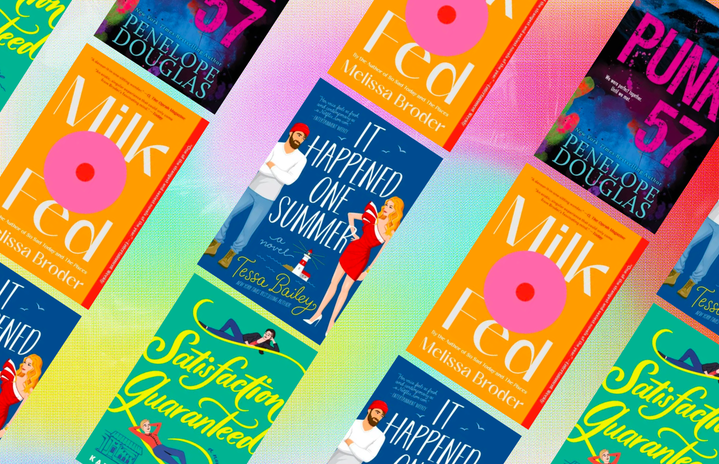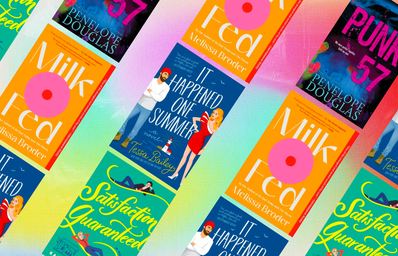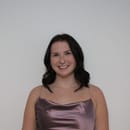The process of writing and publishing a book is mystifying at best. For every article promising to have cracked the code to writing a bestseller, there are four more telling you that everything you think you know is incorrect. As with any new skill, the best way to learn how to write a book is from someone who’s done it. With that in mind, I turned to USA Today bestselling author and London local Jenny Holiday.
With stories ranging from college newsrooms in the 80s to romantic comedies on the shores of Lake Huron, Holiday’s list caters to every romance lover. Some of her most well-known books include her Christmas in Eldovia series, which you’ve almost certainly seen if you’re a frequent user of BookTok. The series comprises three books: A Princess for Christmas, Duke, Actually, and So This is Christmas.
Holiday was kind enough to offer her insight into the publishing industry and her experience writing Duke, Actually. She even went so far as to provide a few words of advice to any aspiring authors out there.
Writing Duke, Actually:
- Which part of the book was the most fun for you to write?
When I asked her what part of the book was the most fun to write, Holiday didn’t hesitate to say that the text exchanges between characters Dani and Max were her personal favourites. “I kind of enjoyed writing the unfiltered ‘I’m not impressed by you, and I’m not going to pretend to be impressed by you [text exchanges],’” she said.
- What inspired your idea for this book:
“These books are kind of… like my version of a Hallmark Christmas movie, but in book form,” said Holiday. Holiday shared that she and her father used to watch Hallmark Christmas movies over the holidays and he was always impressed when she could predict exactly how they would end. Her journey with Christmas novels began when she thought, “maybe I should try to write one of these.”
Fans have been known to call her books “Hallmark after dark,” so clearly, she nailed the resemblance to Hallmark movies.
- If you could befriend any of your characters, who would it be and why?
When prompted to pick one of her characters from Duke, Actually to befriend, Holiday said that she would definitely choose the male love interest, Max: “He pretends to be the big playboy, but really he’s just this big-hearted guy who is fond of making grand gestures, and I don’t just mean romantic ones, but is very loyal to the people that he loves. And he’s the kind of friend that would just be like, what are you doing this weekend? Let’s go to the Bahamas. And it would be on his dime.”
- Do you draw from real-life experience at all? Do any of your characters have traits you pulled from people in your life?
Holiday shared that none of her characters are based on people in her real life; she fabricated all of their quirks, mannerisms and personalities.
Publishing Process:
- How did your writing style change after the publication of your first book? Did you notice any changes in how you coped with deadlines or other publishing expectations?
When you’re writing your first book, you often don’t have a time constraint or other obligations tied to completing your book. As soon as you sign a contract with a publisher, all of that changes. Deadlines, meetings and expectations surrounding your writing are bound to change your writing process in one way or another. Holiday sheds light on her experience by explaining,
“There is nothing like a contracted deadline to light a fire under your butt. In that sense, there’s an external but very real pressure. I don’t mind it. I enjoy writing commercial fiction. I enjoy writing books that people want to read.”
- How many query letters did you send before you signed with an agent? What advice would you give to querying authors?
For those that don’t know, querying is the act of sending pitches to literary agents with the hope of finding representation. Literary agents act as the bridge between publishing houses and authors, so finding a literary agent is a huge step in any author’s career. Holiday shared that her querying experience was different than most: “I queried a bit, and then one of my dream agents was judging one of these contests, so I entered it. I won the category. She judged the finals and asked me if I wanted to submit the whole book. I did, and she offered to be my representation.”
She was also kind enough to offer a few words of advice to aspiring authors. In regards to querying, Holiday believes in the cold querying process: “Querying works. It’s tedious, and painful, and the rejection is terrible, but it works. There really is no shortcut. I believe in the process.”
- How many projects did you write before you signed with your agent?
Holiday revealed that she wrote one book before she signed with an agent. She amicably referred to her unsold project as her “learning book.”
Writing Process:
- What’s one piece of writing advice that changed the game for you?
Holiday expressed that while it’s not a piece of advice that she was ever explicitly given, she firmly believes that when motivation dies, discipline must take its place: “I am definitely a proponent of the butt and chair method, where you’re not going to get anything done unless you sit in the chair and write. The way to write it is to write it.”
Holiday also offered a piece of her own advice: “I always tell people you have to have a draft to fix the draft.”
- What is one trope that you hope never goes out of style?
Even authors have favorite tropes; for Holiday, that trope is enemies to lovers. She tips her hat to those who write the trope, saying that “true enemies to lovers is difficult because to make the enemies part believable, they need to really be enemies, and they need to have reasons to be at odds, but then you have to climb down from that somehow. So you need to make them jerky enough that they’re credible as enemies, but not jerky enough that you can’t rehabilitate them. And that is hard.”
- How do you write emotionally taxing scenes?
Holiday shared that she doesn’t find emotional or high-stakes scenes to be any more emotionally taxing to write than the rest of the book: “Writing fiction, specifically romantic fiction, is an emotionally driven process. The whole process is an emotional undertaking.”
Finally, I asked Holiday what advice she would give to her younger self, to which she replied,
“A lot of the traditional milestones that you are told are important, like bestseller lists or huge advances may never come. I have been surprised by other kinds of things that I never thought to think of as milestones. For example, I was in New York and had lunch with my agent, my editor and my publicist. I had this moment where I thought, ‘okay, we’re sitting here talking about this stuff that I just made up. This pretend world in my head, we’re having a business meeting about it. Those kinds of milestones where I step back and go, ‘wow, this is a real thing,’ have turned out to be more important to me than the traditional milestones. Be less focused on the traditional milestones and notice progress where you can. It’s a hard business.” Anybody looking to read Holiday’s books can find more information on her website. I’d also like to take this opportunity to thank Holiday for her time and willingness to share what she knows about the publishing industry. On behalf of aspiring authors everywhere, thank you.


